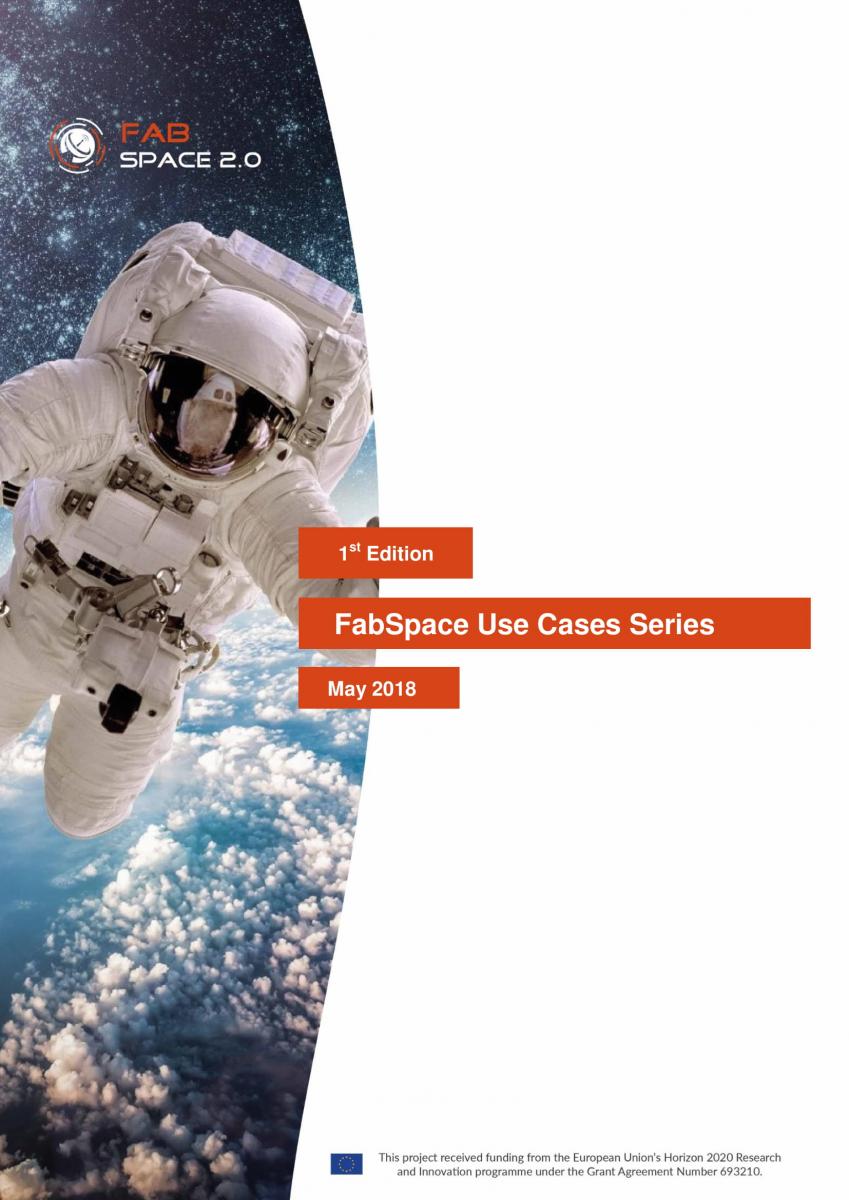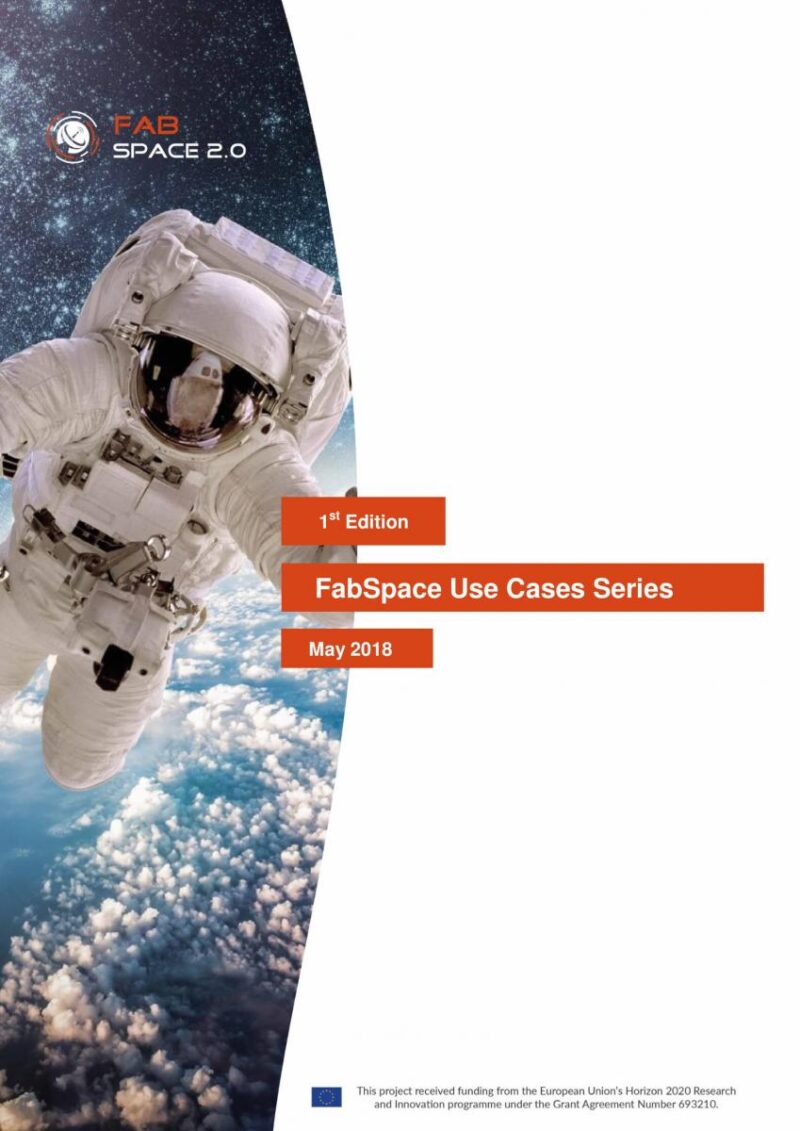FabSpace 2.0 published the 1st Edition of the Use Case Series
13 June 2018

Last month, FabSpace 2.0 published the 1st edition of the FabSpace Use Cases Series as part of the project´s initiative. Specifically, this Use Cases series is part of the activities foreseen within work package (WP) 3 – Animation and Networking for innovation and entrepreneurial discovery, which are implemented throughout the entire lifetime of the project.
WP3 is the central WP for the Daily FabSpaces animation and aim to generate awareness in the academia, research centres, companies and civil society organisations about the application uses of earth observation data and the FabSpace platform and pilot actions. It will also attenuate the boarder effect between projects ideas and start up creation by encouraging FabSpace users in making the first step toward entrepreneurship.
The first edition included seven uses cases collected from various FabSpaces partners and location such as “Epidemic Disease Mapping in Africa” developed by FabSpace Darmstadt, Germany in collaboration with Merck and ESOC at Darmstadt; “Implementation of Earth Observation image processing via Neural Networks on Embedded Architectures”, “Regional Population Estimation Using Satellite Imagery”, “Hyperspectral Earth Observation Image Processing On FPGAs” developed by FabSpace Greece; “Calculation of damage in forests using Sentinel-2” developed by FabSpace Warsaw, Poland; “Mapping deforestation in a location of interest” developed by FabSpace Toulouse, France; and “Global Warming Impact Assessment on the Bracciano Lake Surface Temperature” developed by FabSpace Rome, Italy.
FabSpace aims for the use cases to showcase various ideas to use EO data and tools with the aim to attract more people from different backgrounds to generate new projects and promising business plans in the future.
Continuous improvement and more use cases would be expected in the next edition. The next edition of the use cases implemented within FabSpace partners shall be published regularly during the entire lifetime of the project. The FabSpace 2.0 project will continue on the next edition of the use cases with more challenges and categories. The project also welcomes any organizations to be involved in the development of the use cases in order to successfully implement the project findings.
Click here to download the 1st edition of FabSpace Use Case Series.
About FabSpace:
FabSpace 2.0 is the open-innovation network for geodata-driven innovation – by leveraging Space data in particular, in Universities 2.0.
Its Work programme topic addressed INSO-4-2015: Innovative schemes for open innovation and science 2.0 b) Academia- Business/Public/CSO knowledge co-creation Coordination and support action. The FabSpace 2.0 project aims at making universities open innovation centres for their region and improving their contribution to the socio-economic and environmental performance of societies.
To achieve these general objectives, the FabSpace 2.0 project offers to concentrate on one research area with high expected socio-economic impact: data-driven innovation, with a particular attention to Earth observation data.
In the six European regions covered by the consortium, partner universities work together with co-located Business Incubation Centres of the European Space Agency (ESA BICs). ESA BICs aim at inspiring entrepreneurs to turn space-connected business ideas into commercial companies, and provide technical expertise and business-development support.
This consortium, completed by TerraNIS – the French company that operates the European Group of Enterprises for a Network of Information Using Space (EUGENIUS) – and IDGEO – provisioning continuous trainings in Geomatics – and the European Business Network (EBN), will be a key success factor for the project.
In addition, FabSpace 2.0 selected 14 new FabSpaces in December 2017 located in various countries worldwide including France, Italy, Czech Republic, Spain, Lithuania, Armenia, Cyprus, The Netherlands, and Cameroon. These new FabSpaces expanded the FabSpace 2.0 network from its first founder FabSpaces in France, Belgium, Germany, Italy, Greece, and Poland. The international opening of the FabSpace 2.0 network is underway and will be extended worldwide.
This project began on March 1st 2016 and will last 3 years. It is under the lead of Univ. Toulouse III – Paul Sabatier (UPS). For more information, visit https://www.fabspace.eu.

